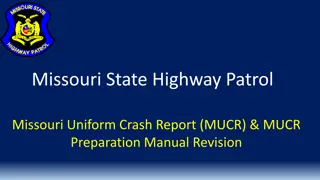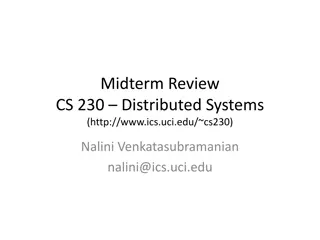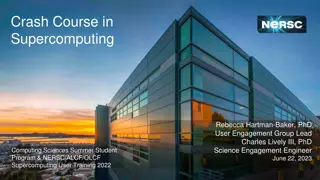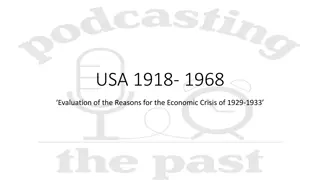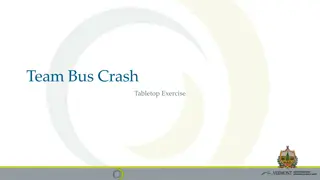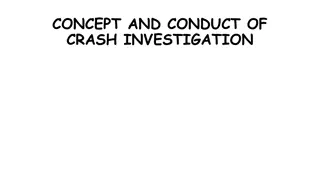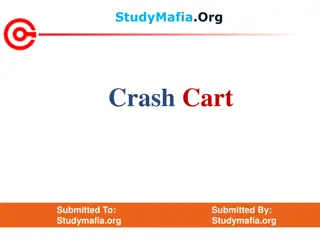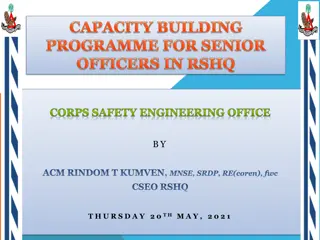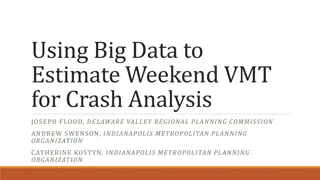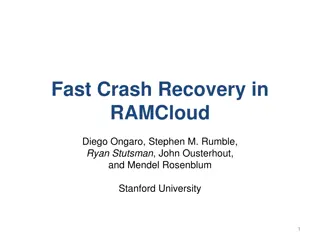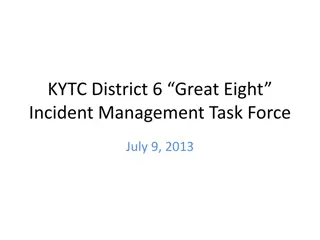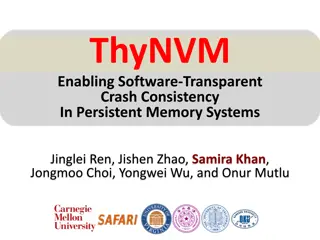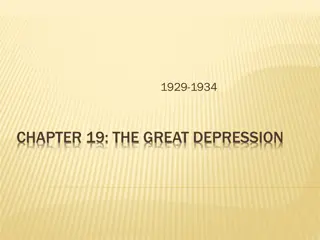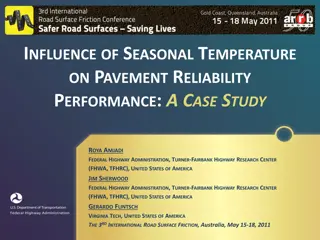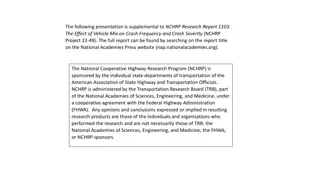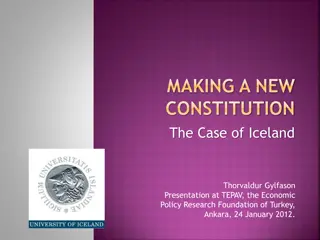
Understanding the Independent Body (IB) and General Assembly (GA) Functions
Learn about the roles and responsibilities of the Independent Body (IB) of Fall 2017/18 in overseeing Universalis, along with General Assembly (GA) functions like handling finances, organizing elections, and facilitating discussions. Contact the IB for more information and access a crash course for a comprehensive overview.
Download Presentation

Please find below an Image/Link to download the presentation.
The content on the website is provided AS IS for your information and personal use only. It may not be sold, licensed, or shared on other websites without obtaining consent from the author. If you encounter any issues during the download, it is possible that the publisher has removed the file from their server.
You are allowed to download the files provided on this website for personal or commercial use, subject to the condition that they are used lawfully. All files are the property of their respective owners.
The content on the website is provided AS IS for your information and personal use only. It may not be sold, licensed, or shared on other websites without obtaining consent from the author.
E N D
Presentation Transcript
(1) (2) GA Introducing the IB crash course
Independent Body (IB) of Fall 2017/18 Function: the controlling organ of Universalis, overseeing the Social Board s and AC s work + finances (1) Audit the finances (2) Organize elections & supervise voting in the GA (3) Handle complaints Sinan Akkurt Felix Boxler Sebastian Olislagers
Contact the IB Email: independentbody@gmail.com Facebook: Universalis Independent Body (facebook.com/independentbody) Website: http://ucmsauniversalis.com/ucmsa-universalis/independent-body/
GA crash course All information taken from the Universalis Policy Manual Want to follow live or keep it for later? Download this crash course at Facebook GA event or Ucmsauniversalis.com > UCMSA > Documents
General Assembly (Chair and Minute Taker) - Chaired by the President of the UCMSA Universalis Board - In absence the Vice-President or another member of the UCMSA Universalis Board chairs the G.A. (Statutes 13.1) - Can be changed by the G.A. according to Article 3.6.10.i g) of the Policy Manual The Chair of the G.A. - Opens and closes the G.A. - Casts the deciding vote in election procedures where two candidates reach equal votes after two rounds of voting (Statutes Article 12.5) - States the result of the voting, which is final as long as no member of the G.A. questions the outcome (Statutes 13.2) The Secretary of the UCMSA Universalis Board shall take minutes - The chairperson can designate another minute taker or the G.A. can request a change of the minute taker (Statutes 13.3 & Policy Manual 3.6.10.i h) - -
General Assembly (Discussion) - The chairperson of the general assembly gives the right to speech to members. (Policy Manual Article 3.6.7.v) Before the discussion of a motion the chairperson sets a time-limit and/or a limit of speakers for the discussion. (Policy Manual Article 3.6.7.v) - The discussion can be expanded (higher time limit/number of speakers), ended, moved to a vote, postponed or shortened (smaller time limit/number of speakers) (Policy Manual Article 3.6.10.i) The chairperson shall make sure that all positions are represented with equal weight (Policy Manual Article 3.6.7.v) The chairperson has the right to stop a speech should it be purposefully offensive or disruptive to the general assembly (Policy Manual Article 3.6.7.v) - - -
Motions Until one week before the GA: Motions: proposing changes to the Policy Manual During the GA: Ad hoc motions - Ad hoc motions can be put forward at any time during the G.A. - Ad hoc motions can only contain changes to an already proposed motion - Ad hoc motions have to be voted upon before they can be discussed Motions for Dismissal - Concerning members of the UCMSA Universalis Board, Academic Council and the Independent Body Procedural Motions
Procedural Motions (1) Every member of the general assembly has the right to put forward a procedural motion. These are signalled to the chairman by making a | with both hands and shall be discussed the moment the current speech ends. Procedural motions can address the following points: a) Expanding the debate by adding further time or heightening the number of speeches; b) Ending the debate; c) Directly moving to a vote; d) Postponement of a motion to the next general assembly; e) Setting a time limit to speeches; f) Pausing the general assembly; g) Changing the chairman; h) Changing the notetaker; i) Making the general assembly private
Procedural Motions (2) - The person putting forward the procedural motion has the right to argument in favour of their point for one minute. Following this any other member might argue against the procedure change for one minute. After that the procedural motion shall be voted upon, with an absolute majority needed for it to pass. If there is no one to hold the counter speech the motion passes automatically, as long as no vote as specifically requested by a member of the general assembly. - - -
Technical Points - Every member of the general assembly has the right to put forward a technical point for clarification These are signalled to the chairman by making a T with both hands and shall be answered the moment the current speech ends. A technical point is the request of any member for clarification. This can be done both to the discussion or as a request to check and/or clarify the policy manual and/or the statues and see whether the current procedure is in line with the outlined rules. This check shall be done by the chairman together with a member of the Independent Body and the raiser of the point. - - -
Showing agreement + disagreement during the discussion (not voting!) You agree with something: You disagree with something: waive your hands like this waive your hands like this
General Assembly Voting Procedures - - Each member has a single vote The President of the UCMSA Universalis Board shall determine the voting procedure (Statutes Article 12.4) Decisions are taken by an absolute majority (Statutes Article 12.5), except where specified differently by Dutch Law or the Statutes Voting in general is open, however elections are held by secret ballot - For any vote a member of the G.A. can request a secret ballot, which is followed if at least 10% of attending members vote in favour of the request (Policy Manual Article 3.6.7.vi) - -
Proxies for absent members - An absent member can vote if they provide a written proxy to an attending member. The written proxy must be cast prior to the opening of the G.A. (Policy Manual 3.6.7.ii) An attending member can function as a proxy for a maximum of two absent members (Statutes 12.2) -
Quorum - If the attendance of the G.A. drops below 2/3s of the initially present members the G.A. ceases to be quorate (Policy Manual 3.6.7.iii) Any member can request a count of present members. The chairperson has three minutes to call members to reenter the general assembly before the count takes place. (Policy Manual 3.6.7.iv) -
Cant remember all of this by now? Find this presentation & the entire policy manual online! Posted in today s Facebook GA event On the Universalis website: ucmsauniversalis.com > UCMSA > Documents


